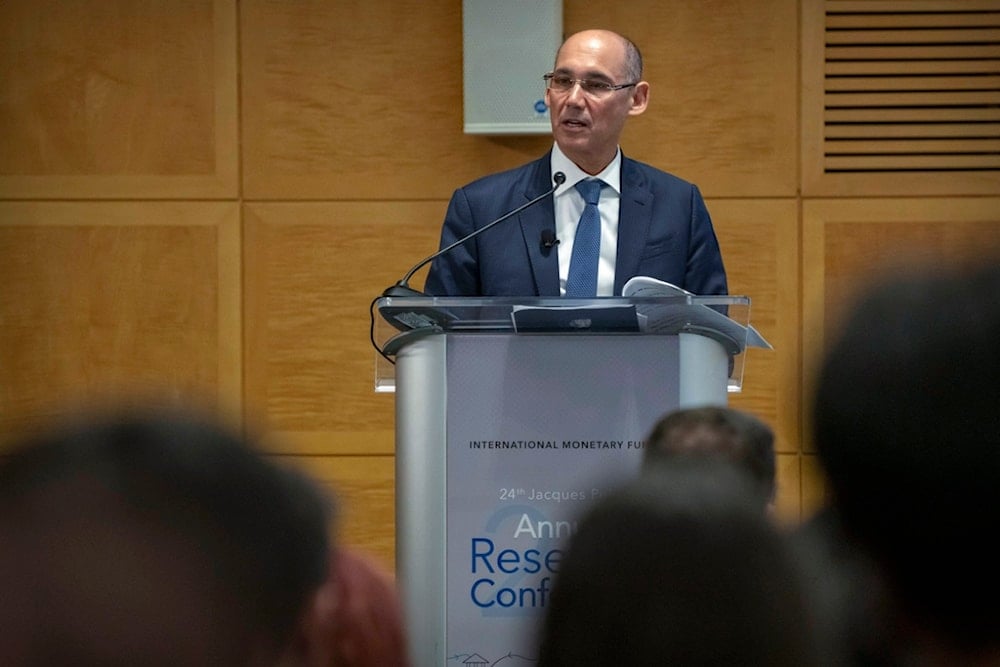Israeli central bank chief warns of economic impact of war on Gaza
Bank of "Israel" Governor Amir Yaron acknowledged that the war will undoubtedly create fiscal effects and place strain on the budget.
-

Amir Yaron, Governor of the Bank of "Israel", speaks at the 24th Jacques Polak Research Conference at the International Monetary Fund on Thursday, Nov. 9, 2023, in Washington (AP)
"Israel's" central bank chief has expressed that the war on Gaza is causing greater financial strain than initially anticipated, labeling it as a "major shock" to the economy.
Speaking at an IMF conference in Washington, Bank of "Israel" Governor Amir Yaron acknowledged that while the Israeli economy allegedly remains "robust and steady", the war will undoubtedly create fiscal effects and strain the budget.
Yaron mentioned that "Israel's" GDP growth is anticipated to decrease by approximately 1% in both 2023 and 2024.
He also highlighted an expected increase in the debt-to-GDP ratio, projected to surpass 65% by the close of 2024, in contrast to the just under 60% ratio prior to the war.
This shift is attributed to higher costs surpassing initial projections.
Yaron clarified that these projections were formulated assuming the war would remain localized to "Israel's" southern border and persist until this year's end.
"The Israeli economy has known how to function and to recover from difficult periods in the past and to return to prosperity rapidly," Yaron claimed.
"I have no doubt that the same will be the case this time."
Read more: The Israeli economy also a direct casualty of Al-Aqsa Flood operation
Last Tuesday, Bloomberg said in a report that during the month of October, "Israel's" foreign reserves decreased by $7.3 billion (3.7%) to a total of $191.2 billion.
The drop was primarily attributed to the regime's central bank's efforts to support the shekel following the start of the resistance operation on October 7.
Israeli stocks and bonds experienced significant declines as traders were concerned that the war might spill out into the region.
Despite this decline, analysts say the reserves remained higher than the past decade's average.
Israeli assets, including the shekel, have shown some improvements amid a global relief rally and speculations that the war on Gaza may soon come to an end.
But for how long the shekel remains in good standing is up to debate.
Since the start of the resistance operation, several countries have called for a boycott of Israeli products and have expelled Israeli envoys.
The global movement to boycott Israeli products is likely to have severe consequences on trade and investor sentiment, which will impact the regime's economic performance.
Read more: Israeli aggression driving global recession, Wall Street giants say

 3 Min Read
3 Min Read








